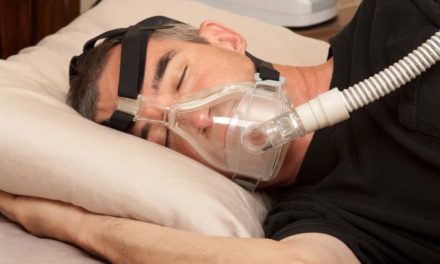Of all addictions, alcoholism is not only the most common in Canada, but it can be the more deadly addiction of all, even more so than cocaine or heroin. This data was compiled by the Canadian Centre on Substance Abuse and Addiction. Alcohol abuse damages both the mind and the body and is responsible for unneeded deaths each year worldwide. Accessibility to alcohol plays a factor as it is not prohibited in most countries. In the USA and Canada, pubs abound as do merchants that sell alcohol. The British also see a rising problem with alcohol.
While illegal drugs and tobacco cause a lot of deaths, alcohol is listed as a substance by most countries that causes more deaths than all other substances. Heavy drinking weakens the heart, causes cirrhosis of the liver, deprives the body of nutrients, and has been linked to many types of cancers. Relapse into alcoholism is also common since those addicted to alcohol are exposed constantly to the availability of it. Cirrhosis of the liver can be reversed in the early stages, but quite frankly a liver that is scarred and improperly functioning after years of abusing alcohol is difficult to restore to full function.
In Addition, Individuals Many Times Abuse Alcohol and Use Tobacco or Marijuana
These are cross-addictions that add to the unhealthy lifestyles of most alcoholics. Add to that the fact that alcoholics very seldom eat correctly, and alcoholism sucks the nutrients out of a person’s body. Dehydration is also common, and the health impairments are compounded. If an alcohol detoxification centre is entered for a medical withdrawal from alcohol, the alcoholic faces a lifetime of staying clean and sober. Programs like AA (Alcoholic Anonymous) are there to assist with meetings at several locations in each area of Canada. A sponsor is usually given to each alcoholic and this person assists with recovery by offering emotional support to an alcoholic in recovery. AA is free and accepts individuals of all ages.
Medical Detox Is Usually the First Step in Overcoming Alcohol Addiction
Since gastrointestinal upset, anxiety and depression, agitation, shakiness, dizziness, and worst of all seizures can occur when alcohol is stopped abruptly, joining an in-house program can assist with these symptoms and make detox easier. The possibility of seizures is most alarming; so many doctors will recommend medical detox as a first step. Many in-house programs have a full medical staff of doctors, nurses, and therapists and even after detox, treat the addict as a person in need, focusing on helping them regain confidence and strength. Programs can include the use of exercise and proper nutrition to assist on the path of wellness, both mental and physical. The underlying issues such as depression or anxiety are addressed also.
Aftercare Alcohol Treatment Programs Must Be in Place to Avoid Relapse
Combating alcoholism is a lifelong struggle and programs such as AA can fill the void left when released from a detox facility. Since many alcoholics are not yet ready to face the world at large after detox occurs, some are sent to group homes where they continue the program of therapy, nutrition, and exercise. In this environment, they are not subjected to the stressors of the everyday world, and although free to come and go as they please, alcoholics must follow house rules and not indulge in any way in alcoholic beverages. They also find companionship in these types of settings and are gently re-introduced to real life outside of any program. The recovered alcoholic is also given information on AA and other programs of follow up within their own communities.
The Canadian Managed Alcohol Program System (MAPS) is a great resource that can assist chronic alcoholics and has a wealth of information on community programs as well as insights into the disease. Alcohol is considered a disease, not just a failing of character. This research and resource study is a guide not only for recovering addicts but also for the programs that assist addicts in overcoming their addiction to alcohol.
If some alcohol addiction is not severe a program for a gradual decrease in consumption can be done by individuals themselves, with monitoring by an outside program. The addicted individual slowly decreases the amount of alcohol they consume each day as going “cold turkey” even with milder alcoholism can lead to the physical withdrawal symptoms mentioned earlier in this article.
Relapse Is What Most Alcohol Treatment Programs Seek to Avoid
No matter what the approach used, the alcoholic is exposed to alcohol everywhere in the outside world. The ability to avoid relapse is the focus of all programs. Since detox is not a great experience with withdrawal symptoms, once someone is clean and sober it is a priority of all programs to try and ensure that the addict stays clean and sober. Avoidance of all friendships with other alcoholics is stressed as is avoidance of stressful situations within the home or workplace. Most relapses occur when an alcoholic is “triggered” by stressful events and cannot resist the compulsion to squelch their feelings yet again with alcohol.
Alcohol Addiction Causes Financial, Emotional, and Family Issues
Loss of income, loss of family and friends, and loss of respect for themselves are generally side effects of the addiction. Knowing how to avoid situations where “triggers” will occur and if these do occur, how to deal more effectively with them, is part of the learning process that is taught in each alcohol treatment program. There are no guarantees with alcohol addiction, but there is a great deal of hope. Even if a relapse occurs a good alcohol treatment program will be there for the alcoholic and help them back onto the path of recovery for life as soon as it is possible. There is no shame in having an alcohol problem and programs focus also on helping an alcoholic overcome their shame. Finding the right alcohol treatment program can lead to a great quality of life again without the burden of alcoholism lurking in the background.















